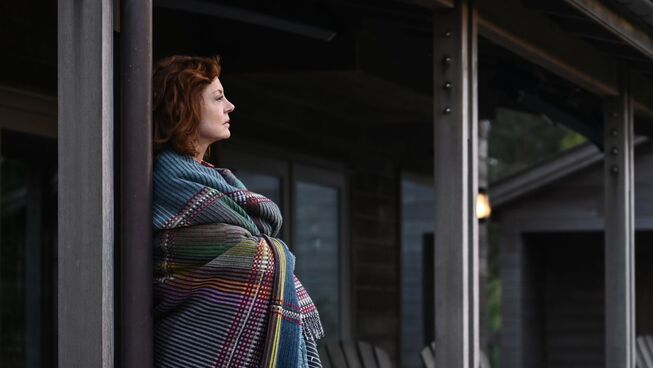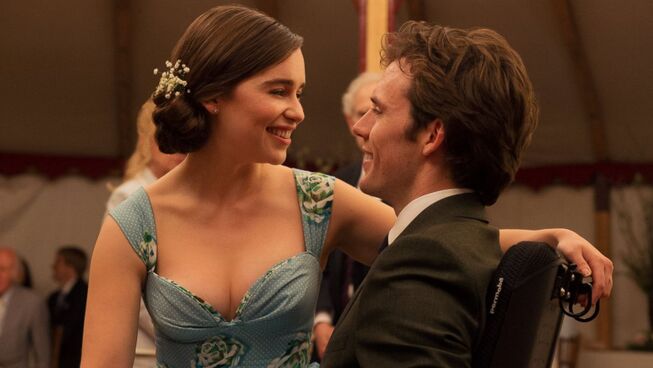
‘Nothing is worthwhile; everything is futile. For what does a man get for all his hard work? Generations come and go, but it makes no difference. The sun rises and sets and hurries around to rise again. The wind blows south and north, here and there, twisting back and forth, getting nowhere. . .everything is unutterably weary and tiresome.’ - Solomon
These ancient words from one of the world’s wisest men are filled with despair. His insights could just as quickly be an analysis of today’s world. If left on their own, they could be the underlying theme of the recent Roger Michell (Notting Hill) project, Blackbird.
This deep and thought-provoking story is based on Christian Torpe’s adapted script from the award-winning Danish movie Silent Heart. We are introduced to Lily (Susan Sarandon) as she awakes in her palatial home on the Connecticut coastline. She and her husband, Paul (Sam Neill), are preparing for a family reunion unlike any they have had before. Everyone has been invited to come to the family estate and say goodbye to Lily before she dies. The formerly vibrant and energetic woman has moved into the later stages of ALS (Amyotrophic lateral sclerosis). These medical issues lead her to decide that after the upcoming family reunion that she will take her own life.
Each family member has been made aware of her decision and arrives with different levels of acceptance and views of their mother’s choice. As the eldest daughter, Jennifer (Kate Winslet) comes with her husband, Michael (Rainn Wilson) and their 15-year-old son, Jonathan (Anson Boon). Jen tries to find some control within this chaotic atmosphere of coming to terms with her mother’s death, while explaining it to her teenaged son and managing her judgment of her younger sister. Anna (Mia Wasikowska) has been separated from the family for some time. Still, she decides to not miss this life-changing event and brings along her partner, Chris (Bex Taylor-Klaus). As each family member arrives, the tensions begin to rise. Everyone manages to put on their best game face until Lily’s best friend, Liz (Lindsay Duncan) knocks on the door. Once all of the players are in place, the beautiful house walls soon turn into a familial pressure cooker.
What is impressive about this film is how Roger Michell has managed to bring together such an outstanding cast. Each of the talented performers manages to embody their characters with disconcerting ease and convincing abilities that make them seem like an actual family. This work complements the profoundly personal and masterful script of Christian Torpe, even though the subject matter is challenging to take in from start to finish. To label this production as anything less than stellar would be a disservice to these talented filmmakers. Yet, the screenplay's overarching theme makes it hard to recommend to anyone but those with the most discerning tastes.
As each layer of this tale is added on, this Ecclesiastical journey begins to buckle under the weight of years of pain, anger and despair. There is love evidenced among everyone within the home, but the cathartic exercise exposes the bitterness that most are holding onto as they enter their part of the story. Interestingly, the actions of Lily are meant to be considered as merciful and a celebration of life, but it manages to show that this narrative lacks any hope or solace for the rest of her family and could be interpreted as selfish.
All who know of the detrimental effects of ALS can understand the desperate actions of the lead character and it weighs against the legal and moral implications it opens. Assisted suicide is an illegal act in Connecticut and the whole family potentially becomes accessories to this crime. Regardless of the various justifications that are argued throughout the film, it does not make this legally acceptable. Yet, the legal precedence is really the lesser of the two points of discussion.
Beyond the legal issues that are being considered in Christian Torpe’s writings, the discussions' real heart comes down to the overall morality of assisted suicide. Is this act morally right or wrong? To answer this question, it must come from a source beyond mere personal conjecture and one that exists outside of the human heart. If you wear the label of Christian, one element that weaves throughout the Bible is the sanctity of life. Also, how these inspired words provide resolve to the answer found in God’s wisdom and manages to diffuse this topic's emotional aspects. God reminds mankind that He will never waste the pain we struggle through in this life. He will turn it around for good somehow and use it to strengthen us and to help others. There is always another option and suicide is not something that anyone needs to choose as the answer to life.
My friends, the subject matter of this film is not easy to answer when confronted with the harsh realities of life. Solomon's opening words seemed to be ripped from the screenplay of Blackbird, but thankfully his writings did not stop there. This wise man’s words merely show the realities of this world, but later he shows that we can have hope, joy and gladness despite what comes into our lives. Not as an outpouring of our own decisions or labours. No, it is due to God's loving hand who loves all of his created beings and values each life. Your life is valuable and not ours to take, but this needs to be worked out between you and God. Which can be done at any time through prayer and by opening his book.
Later in Ecclesiastes…
‘Anyone who is among the living has hope —even a live dog is better off than a dead lion! For the living know that they will die, but the dead know nothing; they have no further reward, and even their name is forgotten. Their love, their hate and their jealousy have long since vanished; never again will they have a part in anything that happens under the sun. Go, eat your food with gladness, and drink your wine with a joyful heart, for God has already approved what you do.’ -Solomon
Suppose you want to begin to explore this profoundly existential aspect of life. Within the words of Ecclesiastes, Solomon gives us the answer to where that journey starts. It all begins and ends with the fear of God and doing what he tells you.
And that’s it. Eventually God will bring everything that we do out into the open and judge it according to its hidden intent, whether it’s good or evil. - Solomon
This might be more than you expected from a film review, but this story needs a bit more attention than a mere star rating. Begin with some time in Ecclesiastes and then follow that up with one of the biographies of Jesus.
Where can you can find help if you are having suicidal thoughts?
In Australia: Call Lifeline at 13 11 14 or go to the website: lifeline.org.au
If you want to more about the message of Jesus: Contact the team at City Bible Forum through office@citybibleforum.org or citybibleforum.org/sydney







